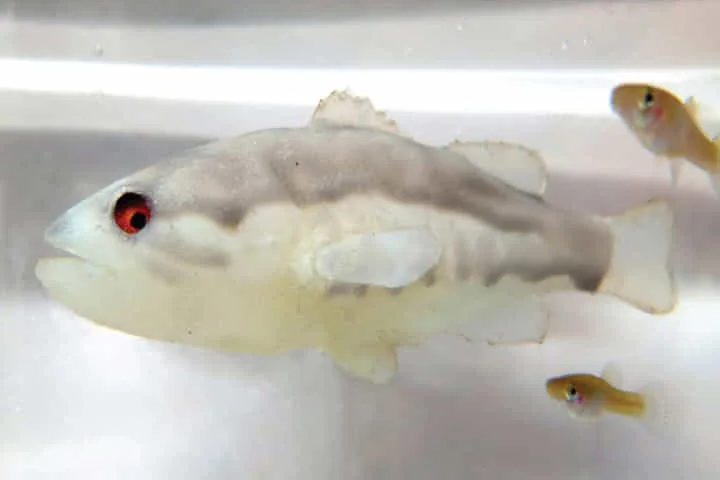Despite its small size and self-effacing demeanour, the mosquitofish who are invasive fish are a nuisance as outside their natural habitat, they compete with other freshwater creatures like fishes and tadpoles and eat up their eggs. With no natural predators, they grow in numbers and upset the wildlife balance which is native to the region.
According to an article in smithsonianmag.com, now scientists have found a way to check mosquito fish without compromising the ecosystem. It is a robotic fish as per a report in New York Times. The findings of the scientists have appeared in the journal iScience.
The study’s lead author Giovanni Polverino who is University of Western Australia’s biologist in a Press release said: “Instead of killing them one by one, we’re presenting an approach that can inform better strategies to control this global pest. We made their worst nightmare become real: a robot that scares the mosquitofish but not the other animals around it."
Almost a century ago, in the 1900s, mosquitofish were used globally to curb the growing numbers of mosquitoes as they fed on the larvae of the insect and thus help to check the spread of the dreaded illness malaria. Instead of doing what it was released to do, the mosquitofish devoured the eggs of other native species and animals. What aided them is the absence of any natural predators.
The design of the robot fish resembles that of a largemouth bass – which is among one of the natural predators of the mosquitofish. There is a camera on it to help it ascertain the difference between tadpoles and mosquitofish.
As per a report in Science News, the scientists used 12 tanks, each of which had six tadpoles and six mosquitofish in which they were allowed a week to get used to each other before being introduced to the robot. Then for a duration of an hour, twice in a week, each group was kept in a tank with the robot.
Also read: Invasion of highly toxic toads worries Taiwan
The presence of the robofish changed the equation between the mosquitofish and the tadpoles. The former were observed to be in a bunch with their swimming becoming inconsistent which was good for the tadpoles who now dared to move around freely and fearlessly without worrying about their tails being nipped.
What was significant is that these effects continued even after the last encounter with the robot with the mosquitofish exhibiting less activity and eating less, all showing anxiety, as per the Press statement.
Science News reports that interaction with the robofish had substantial consequences on the mosquitofish. They lost weight as their energy was expended on living in fear with the shape of male body altering – making it more streamlined to make them get away quickly when cornered. Last but not the least, the count of their sperm dropped by half.
Talking to the Times, Polverino said: "You don't need to kill them. We can basically inject fear into the system, and the fear kills them slowly."
Also read: Whales follow sound signals to hunt down fast moving prey
Despite the promising results of the study, time is not right yet for the robofish to be released in water. This is because the long-term repercussions and results downstream and on other beings in the wild and ecosystem need to be understood. Still Polverino feels it has shown that fear can induce consequences on the breeding and survival of mosquitofish.
In the statement for the media, Polverino noted: “Hopefully, our approach of using robotics to reveal the weaknesses of an incredibly successful pest will open the door to improve our biocontrol practices and combat invasive species. We are very excited about this.”
Going ahead, the Times reports that the researchers now want to test the robot in Australia’s freshwater pools – where the danger of mosquitofish multiplying and thereby endangering other creatures looms large.




















